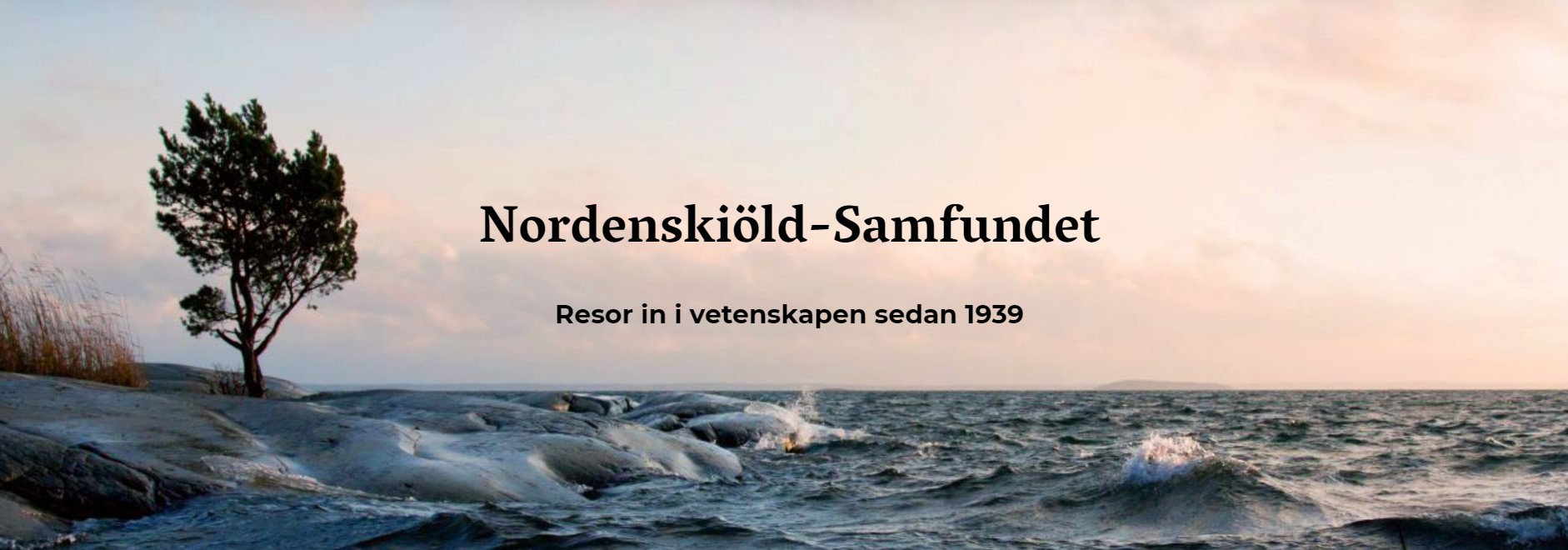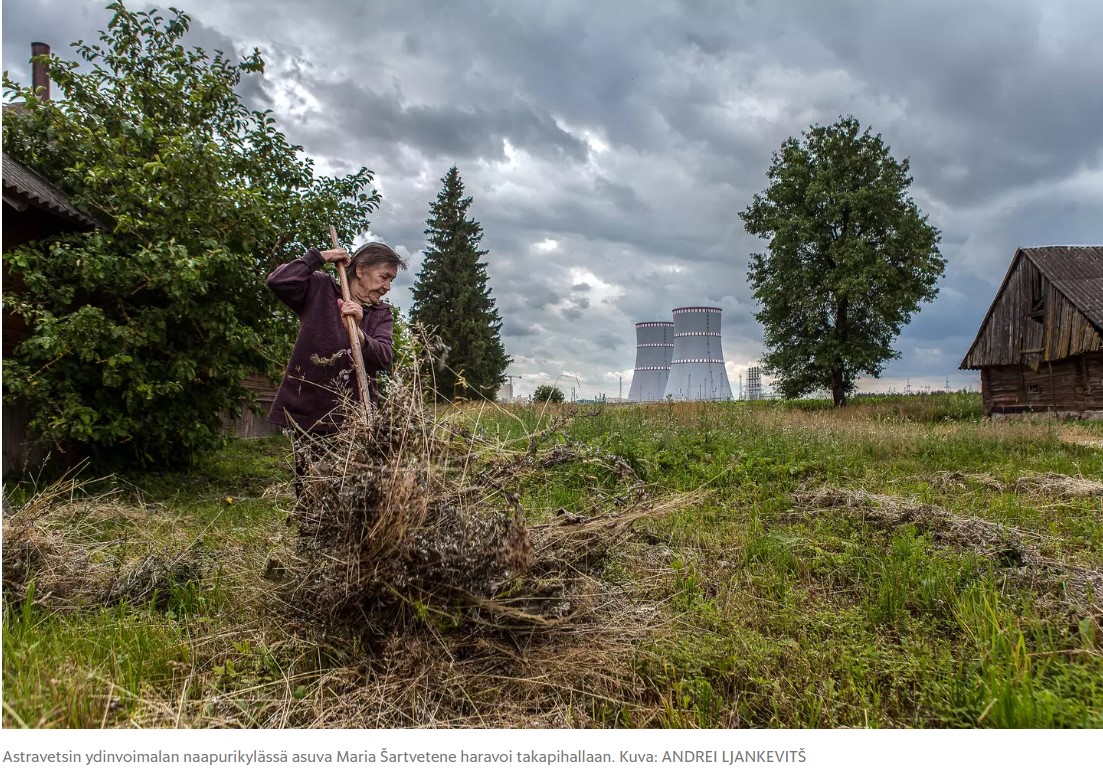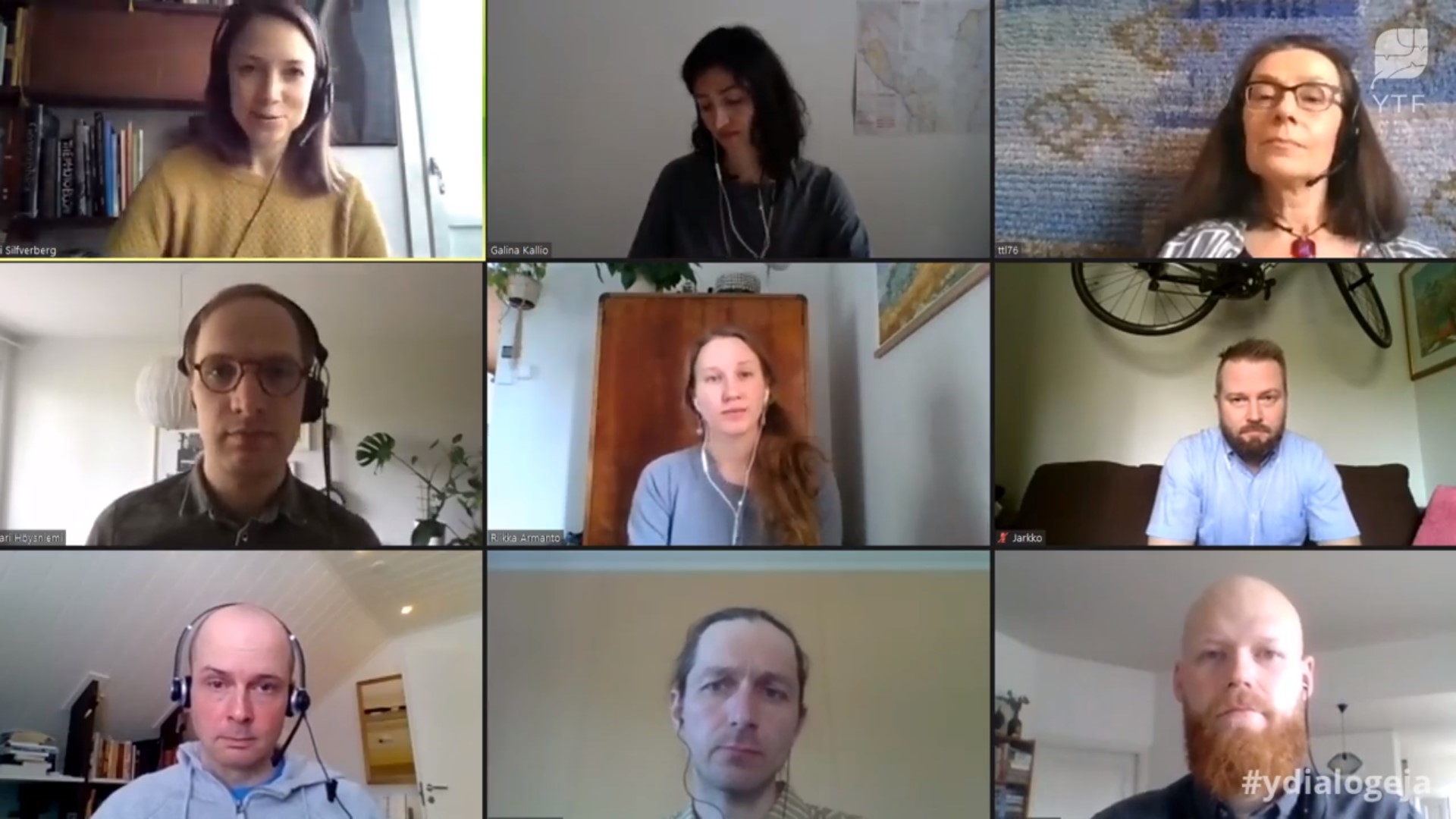Our Doctoral Candidate Sohvi Kangasluoma got a grant for her dissertation from Nordenskiöld-Samfundet. Nordenskiöld-Samfundet is a society aimed at promoting geographical, scientific, and cultural-historical research on the archipelago. With the help of the grant, Sohvi Kangasluoma will continue to study the effect of the Arctic oil and gas industry on human security. Congratulations, Sohvi!
Astravets nuclear power plant
Today Helsingin Sanomat published an article “Venäläisen voimalan varjossa” (In the shadow of the Russian power plant), telling a story of the Astravets nuclear power plant. The power plant is the first one to be built in Belarus after the Chernobyl disaster – in the country that took the harshest consequences of the nuclear accident.
Commenting on the issue, Veli-Pekka Tynkkynen encourages not to look at the nuclear sector separately –
Different sectors are interconnected. Nuclear diplomacy is an extension of hydrocarbon culture. Russia finances the nuclear power plant trade with oil and gas money
Read the full article online at Helsingin Sanomat.
Book review on “The energy of Russia: hydrocarbon culture and climate change”
Jesse Swann-Quinn (PhD, Department of Geography, Maxwell School of Citizenship and Public Affairs, Syracuse University) wrote a review on Professor Tynkkynen’s book “The energy of Russia: hydrocarbon culture and climate change”. The review is published in the “Eurasian Geography and Economics” journal.
As COVID-19 spread globally in the winter and spring of 2020, the governments of Russia and Saudi Arabia upended oil markets. They had failed to agree on a response to collapsing demand within the global oil supply chain, causing crude prices to temporarily drop below zero in some markets. Though shocking, this crisis response was presaged in a letter to Vladimir Putin a year earlier when Igor Sechin – the head of Russia’s state oil and gas company, Rosneft, and a Putin confidant – purportedly argued that agreeing to cut oil output within the OPEC+ coalition posed a “strategic threat” to Russia. While framing Russia as threatened by external geopolitical and market forces, Sechin simultaneously characterized Russia as a global energy superpower, fortified by “the availability of quality recoverable oil reserves, necessary infrastructure and personnel.” (Korsunskaya and Astakhova 2019). In making this argument to Putin, Sechin invoked powerful scripts of Russia’s energy, identity, and space, which Veli-Pekka Tynkkynen deconstructs in his short and illuminating book The Energy of Russia: Hydrocarbon Culture and Climate Change (2019).
Read the full review on the journal website.
Rethinking climate leadership: Annex I countries’ expectations for China’s leadership role in the post-Paris UN climate negotiations
The first article of our Doctoral student Karoliina Hurri was published this month in the “Environmental Development” journal. In the article titled “Rethinking climate leadership: Annex I countries’ expectations for China’s leadership role in the post-Paris UN climate negotiations“, Karoliina discusses climate leadership expectations for China.
Developed countries, defined in the global climate negotiations as the Annex I countries, have been expected to take the lead in tackling climate change. However, given the severity of climate change, reducing China’s emissions is critical. China is a developing country with world’s highest emissions and a leader in the renewable sector. Hence, outside expectations for China’s climate action have been growing. Through constructivist role theory, the article researched what external expectations there are for China’s potential climate leadership role. The leadership expectations of developed countries were examined from the UN climate conference high-level segment statements from 2016 to 2018. Results of the discourse analysis explain the expectations in six storylines: 1) all parties are placed on the same line, 2) the dichotomy of developing and developed countries is deconstructed, 3) the position of developing countries is highlighted, 4) China has a greater responsibility than non-Annex or a regular party, 5) China is recognized as a climate actor, and 6) China is excluded as a major player. The expectations recognize China’s structural climate leadership but acknowledging China as a global climate leader might pose a role conflict for the developed countries. The conclusion suggests that this acknowledgement would require developed countries to rethink their own climate leadership and assign the role with China.
The article can be read online on the ScienceDirect website.
China and its Arctic Trajectories: Final Remarks
The Arctic institute’s China Series, coordinated by Dr. Sanna Kopra, are approaching their end. In the last post, Kopra gives final remarks on China and its Arctic trajectories.
When we began to put together The Arctic Institute’s China series in the beginning of this year, little did we know about what was about to happen due to the outbreak of the coronavirus pandemic. Today, it is not difficult to imagine that far-ranging consequences of the pandemic will reshape economic and political dynamics in the Arctic region. Will the pandemic constitute an exogenous shock that triggers fundamental change in international order, including the regional order in the Arctic? What kind of role will China play in the reconstruction of the Arctic economy and what are geopolitical and environmental consequences?
Read the full version of the text on the Arctic Institute’s website.
How to secure food and energy in a vulnerable world?
Today Forum for Environmental Information released a publication, based on the YHYS Policy dialogue 2020, that was held on the 25th of May. The publication is titled “Miten turvataan ruoka ja energia haavoittuvassa maailmassa?” (How to secure food and energy in a vulnerable world?).
We received the first taste of the vulnerability of food and energy systems with the corona crisis. The Spring 2020 Policy Dialogue sought ways how to produce food and energy sustainably well into the future, while at the same time better preparing for the threats of our time: pandemics, climate change, and security threats. Increasing self-sufficiency and local models are part of new, more sustainable food and energy systems. In order for complex systems to change, it is essential to make them understandable and to bring them closer to both policy makers and consumers.
Our Doctoral candidate Sakari Höysniemi, who participated in the discussion in May, also contributed to the publication.
“Even though the world of the future is more electronic, we need to think about how to electrify everything. I would like to see a reflection on the energy visions of transport, whether by changing the current car pool from oil to electricity, or whether by reducing the number of private cars at the same time. Public transport, walking and cycling are much more efficient modes of transport in terms of the use of natural resources than having every Finn move alone in their own car. ”
The publication is available for reading online.
Disaster in Norilsk
On the 29th of May, 21,000 m3 of diesel oil spilled in Russian town Norilsk (Krasnoyarsk Krai) from a fuel storage tank. Nornickel company claimed that the melting of permafrost on which the tank was built resulted in the accident. The oil contaminated an area of more than 350 square kilometres, including the Daldykan and the Ambarnaya rivers – one of the largest oil spill disasters in the world. For first 2 days after the spillage occurred, the authorities did not take any action before the mass and social media started to talk about the disaster. On the 3d of June, the accident was proclaimed a federal-level emergency.
This morning Veli-Pekka Tynkkynen gave his comments on the situation at the Ykkösaamu programme. To learn more about the disaster, listen to the discussion with Professor Tynkkynen and Kirsten Jörgensen, leading researcher at the Finnish Environment Institute, starting from 59:49 at Yle Areena.
Polar readings 2020
On 18-21st of may the annual scientific conference “Polar readings 2020. History of science research in the Arctic and the Antarctic” took part online. It was devoted to the centenary of the Arctic and Antarctic Research Institute in St. Petersburg and to the bicentenary of the Antarctic exploration. Our project AUCAM was presented at the conference by Nikolai Bobylev with a presentation by him, Alexander Sergunin, and Veli-Pekka Tynkkynen. The slides and main theses can be found from the conference website, and Bobylev’s can be watched on Youtube.
Mistä ruoka pöytään ja energia piuhaan? YHYS Politiikkadialogi 2020
Today our Doctoral candidate Sakari Höysniemi participated in the event titled “Mistä ruoka pöytään ja energia piuhaan? YHYS Politiikkadialogi 2020” (Where do the food on the table and energy in cords come from? YHYS Policy dialogue 2020) on the 25th of May. The event was organised by the Forum for Environmental Information and was held online. Sakari participated in the second discussion of the event, where the participants talked about their perspectives on energy security and sustainable models of local economies.
More information on the event can be found from Ympäristötiedon foorumi.
A book review on Sanna Kopra’s book “China and great power responsibility for climate change” has been published this week
A book review by Sebastian Losacker on Sanna Kopra’s book “China and great power responsibility for climate change” has been published this week in Eurasian Geography and Economics.
China is playing an increasingly important role in global politics and value chains. Against this background, it is not only the country’s power that is changing, but also its responsibility. This is particularly true for international climate policy, as China is not only the largest emitter of CO2, but an influential international player. At the same time, other nations such as the USA are currently assuming less and less responsibility. However, China continues to be an emerging economy in many areas and must reconcile this global responsibility with other goals such as poverty reduction and economic catching up. In her book China and Great Power Responsibility for Climate Change, which is based on her dissertation project, Sanna Kopra discusses the understanding of great powers and climate responsibility in the context of China’s current international climate policy engagement.
Losacker, in conclusion, states that “Altogether, Kopra manages not only to deepen the theoretical understanding of great power responsibility, she also provides important empirical insights on China’s international climate policy, marking the book as an important read for academics and policy practitioners alike“. The full version of the review can be read on the journal’s webpage.





